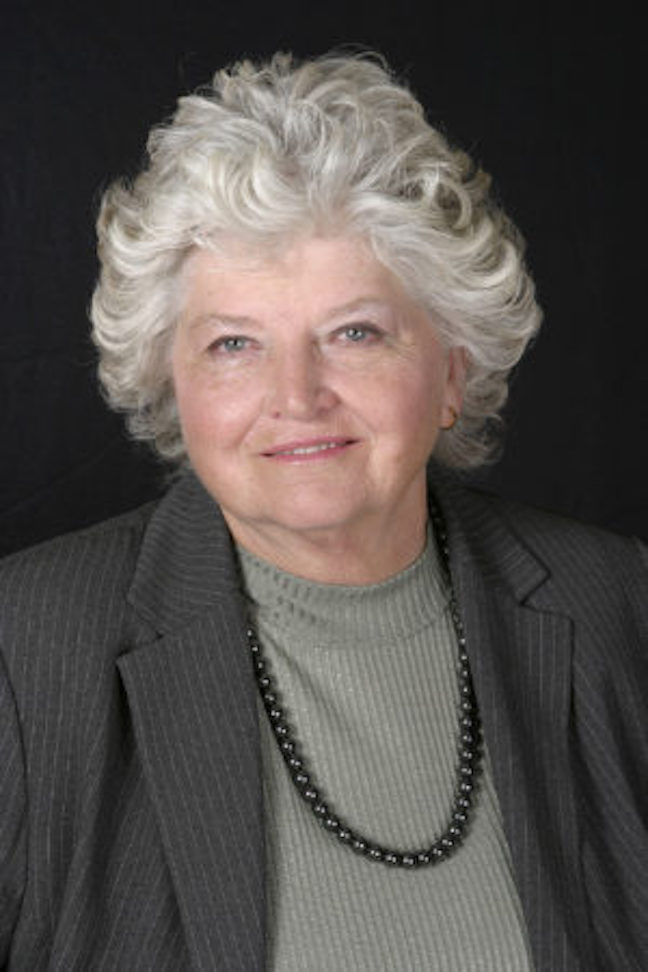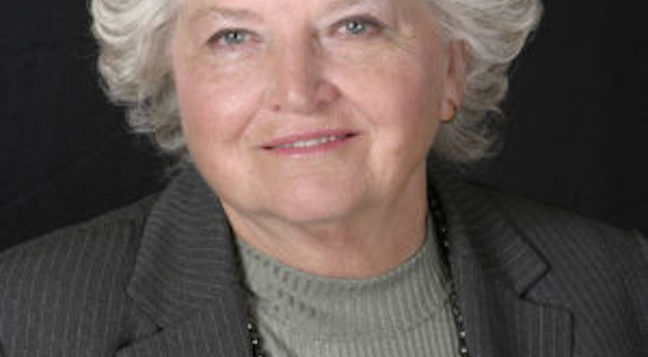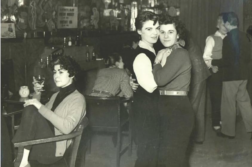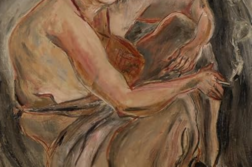BORN AND RAISED on a ranch near Deer Lodge, Montana, Patricia Nell Warren (1936–2019) must have hatched a plan early on to escape those little town blues. In any case, she arrived in New York, New York, at age 23 and soon landed a job with the Reader’s Digest. Along the way she had taken a BA at Manhattanville College in Purchase, NY, and married a Ukrainian poet in 1957 (divorced in 1973). She would remain at the Digest for 21 years, working as an editor for both the magazine and the condensed book division. She came out as a lesbian much later in life.
 The leap from cowgirl to career gal at a time when the latter was a rarity would be impressive enough, but then Patricia started to write novels. (I knew her as both “Patch” and “Patricia.”) The first was titled The Last Centennial (1971) and earned the phrase “almost Faulknerian” from Library Journal. But it was the second novel, published in 1974, that made her famous. The Front Runner was not the first “gay novel,” but it was the first to make The New York Times bestseller list, selling ten million copies worldwide. Clearly a lot of straight people were buying this book, but it quickly became a beacon for the burgeoning gay liberation movement. The reason was that, unlike most books with gay themes, the main characters of The Front Runner were not neurotics or freaks but an Olympic athlete and his coach, both gay, both struggling with their sexuality as well as their feelings for each other, which had more to do with love than with lust (also a novelty).
The leap from cowgirl to career gal at a time when the latter was a rarity would be impressive enough, but then Patricia started to write novels. (I knew her as both “Patch” and “Patricia.”) The first was titled The Last Centennial (1971) and earned the phrase “almost Faulknerian” from Library Journal. But it was the second novel, published in 1974, that made her famous. The Front Runner was not the first “gay novel,” but it was the first to make The New York Times bestseller list, selling ten million copies worldwide. Clearly a lot of straight people were buying this book, but it quickly became a beacon for the burgeoning gay liberation movement. The reason was that, unlike most books with gay themes, the main characters of The Front Runner were not neurotics or freaks but an Olympic athlete and his coach, both gay, both struggling with their sexuality as well as their feelings for each other, which had more to do with love than with lust (also a novelty).
After its early success as a gay anthem, the book had a second life when groups of gay runners began to organize in many U.S. cities calling themselves The Frontrunners. Herself a runner in her younger days, Patricia would travel around the country to visit these groups and could always count on a warm reception.
While she continued to write fiction, notably The Fancy Dancer (1976) and Harlan’s Race (1994), among other novels published by Wildcat Press, she turned increasingly to journalism and nonfiction, contributing many essays to this magazine on a wide range of topics. In our first year (1994), she wrote a piece for a “Youth”-themed issue titled “Generation of the Dispossessed.” Her late articles mostly had historical themes: an exposé of the Freemasons as a den of homoerotism; a spirited argument for Joan of Arc as genetically male. In between were essays on the gay publishing boom and the disunity of the LGBT movement. But if there was one consistent thread, it was the rise of the religious Right and the threat of authoritarian politics. Patricia and I realized early on that we were kindred spirits in this respect, and we shared many e-mails about the dangers of the rising evangelical movement.
These articles of warning bore titles like “If Biblical Law Ruled Modern Society” and “Be Very Afraid—of Loss of Liberty at Home” (in our first issue after 9/11). “Theocracy in America” documented the Christian influence on American political life since the Founding. This voice in the wilderness resembled that of a biblical prophet, paradoxically, as Patricia’s mission was to warn us of the perils of religious fundamentalism, especially for LGBT people. If the success of a prophet is measured by the accuracy of her predictions, Patricia’s admonitions about creeping theocracy seem to be right on schedule.
I met Patricia a few times in person, mostly in the ’90s, including at her gala sixtieth birthday party in L.A., the city where she’d settled after leaving the Digest in 1980. Most of our communication was at a distance, and there was a lot of it over the years as we hammered her many articles into shape. I found her to be as down-to-earth and headstrong as you’d expect a Montana native to be, but with an intelligence and refinement that comes from years of reading and travel and thinking about life’s important questions.
Patricia Nell Warren died in Los Angeles on February 9th at the age of 82.





